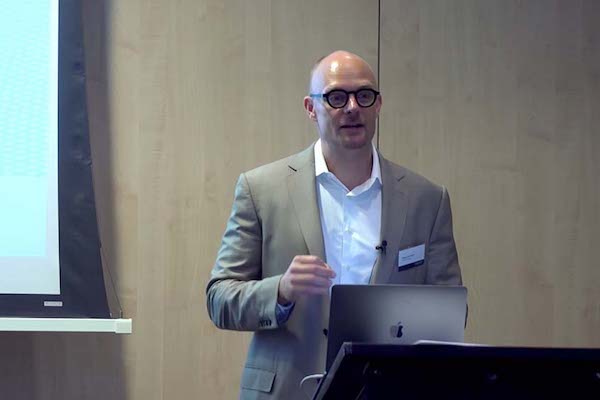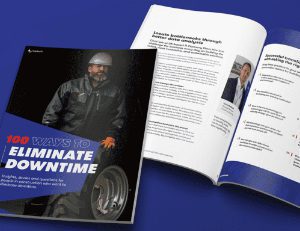

It fascinates me how technology can dramatically transform the effectiveness of something that has been around for millennia. For example, the rockets used in today’s spaceflights are the result of thousands of years of development since ancient Greeks discovered the principles of gas powered propulsion and the Chinese experimented using bamboo tubes filled with gunpowder.
At the recent McKinsey Trackunit Predict Summit 2018, Helge Jacobsen of United Rentals likened the construction industry to a rocket. It was a memorable analogy, since the basics of both subjects have seemingly not changed for thousands of years. And yet both have become transformed to be a lot more complex and technical, with huge advances made even in recent years.
The current generation of Falcon 9 space rockets are similar in lots of respects to the Apollo 11’s which first took man to the moon. But the precision and manufacturing tolerances with which components and systems of the modern rocket are made were unimaginable 50 years ago. The advances in composite materials, the use of technologies such as CADCAM and the process efficiencies of today’s manufacturing means that greater payloads can be taken into space and with this, the horizons for manned exploration are expanding rapidly.

Such advances are being seen in construction too. We are witnessing, for example, deeper and longer tunnelling: Sometime in the very near future, the world’s first kilometre high building will be completed in Saudi Arabia – a landmark development, but one which will no doubt be surpassed before very long as we continue to reach for the sky.
“As with aerospace, there is a lot more precision in construction today,” said Helge Jacobsen.
The use of CAD technology has skyrocketed, and materials are much more advanced… everybody has LEAN or 6-Sigma programs in place to identify and eliminate waste. Precision is one of the core changes that has happened in our industry.
Helge Jacobsen
Another parallel between the rocket industry and the construction industry is the amount of data that’s available. 3,000 years ago, rockets had no sensors other than the naked eye. 50 years ago, Apollo 11 monitored 200 datapoints using telematics. By contrast, the Falcon 9 bristles with sensors monitoring more than 3000 channels of data used in real-time to enable adjustments to be made to the rocket’s operations, moment by moment.
The cost of both sensors and the computing power to collect, analyse and provide actionable information has dropped dramatically as their use has become ubiquitous. Without this effect, there would be no digitalization of any industry sector going on today. And here is one of Helge Jacobsen’s key points – technology and the amount of data now available is a major inflection point for the construction industry.
During the past 10 years, sensor technology has developed at such a rate, and the communications and internet infrastructure has expanded to such an extent, that from almost any point or any location in any construction project you can transmit and receive data. This gives the construction industry a major opportunity to leap-frog the innovation and productivity gap, which McKinsey estimates to be potentially a $1.6 trillion gain.

“The management paradigm is switching from today’s ‘predict and control’ to a real-world ‘sense and respond,’’ said Helge in his presentation. “And in that inversion, the process to 90 percent work and 10 percent coordination is now possible.” In this context, the construction industry will change dramatically, becoming not just a physical environment, it will have a digital twin generating data that will allow the industry to become much more efficient. This level of data will allow us to fine tune the value chain.
Likewise, the equipment used in construction will continue to evolve with more technology and sensors built in as standard equipment. At United Rentals, the last three years diving into the productivity challenge has taught that technology is not actually the hard part.
The hard part is bringing people together – a lot of people with different skills and backgrounds – and using their innate understanding of what it takes to get stuff done.
The only people who understand how to link processes together and unlock value, are those on the front lines and in the field. Helge says that at United Rentals their Lean program has yielded almost $200 million of productivity so far. It was all captured by implementing ideas offered by the workers closest to the work.
Helge said, “to unlock that 1.6 trillion dollars of opportunity, we have to do that work together – from construction workers and equipment operators to managers and supervisors. From equipment manufacturers and rental companies to service providers, training companies and technology businesses. We all have a stake, and we must come together to unlock the productivity potential.” That, of course, would not appear to be rocket science.
Trackunit will shortly be announcing a major webcast to share and discuss the outcomes and insights from the McKinsey Trackunit Predict Summit 2018. Keep reading the Trackunit Predict blog for more details.

Never miss an insight. We’ll email you when new articles are published on this topic.

